Prime Minister visits Imperial as UK pledges net zero carbon emissions
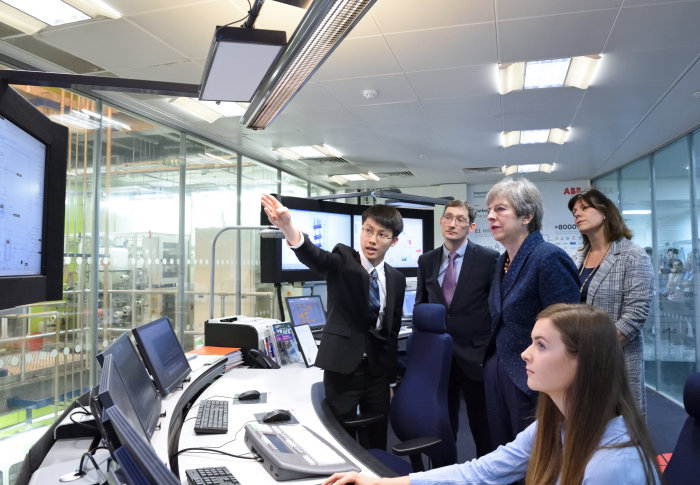
Dr Colin Hale and students demonstrated carbon capture to Prime Minister Theresa May and Energy Minister Claire Perry
The Prime Minister Theresa May announced historic plans to end UK carbon emissions by 2050 at Imperial College London today.
The Prime Minister toured the College’s Carbon Capture Pilot Plant – the most advanced facility of its kind at any university in the world – to meet academics and students who are developing ways to capture and utilise CO2 emissions before they can harm the planet.
The news, which will make the UK the first G7 nation to legislate for net zero emissions, comes just weeks after Professor Joanna Haigh, former co-director of the Grantham Institute, led a group of eminent climate change researchers in urging the Prime Minister to enshrine the target into UK law.
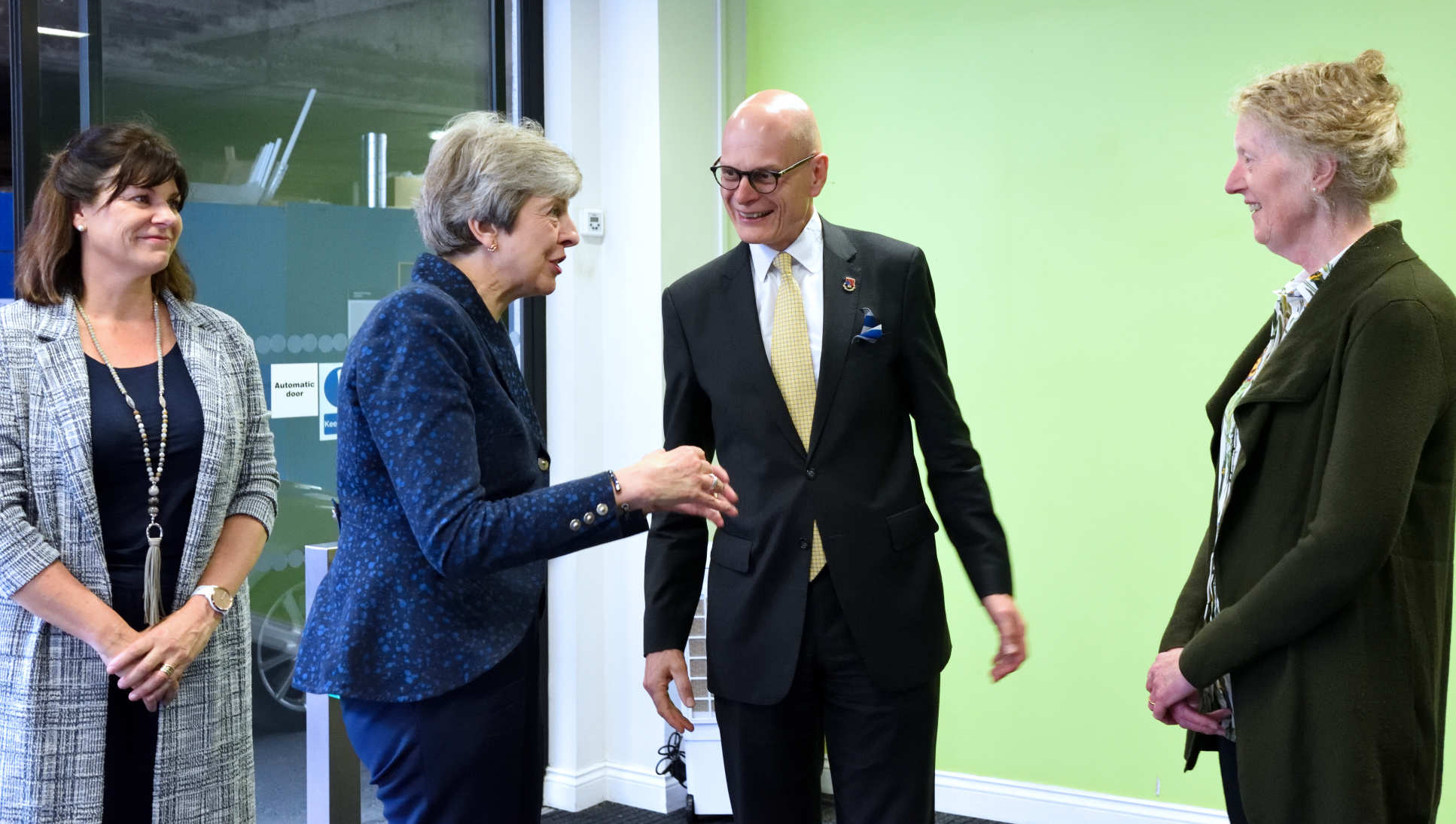
Professor Haigh, who marked her retirement today after 35 years at Imperial, took the chance to welcome the pledge in person as she discussed environmental policy with the PM.
The Prime Minister and Energy and Clean Growth Minister Claire Perry MP were welcomed to the College by Provost Ian Walmsley.
"Standing by is not an option"
This is the Industrial Strategy in action. Claire Perry MP Minister of State for Energy and Clean Growth
Prime Minister Theresa May MP said: “As the first country to legislate for long-term climate targets, we can be truly proud of our record in tackling climate change. We have made huge progress in growing our economy and the jobs market while slashing emissions.
“Now is the time to go further and faster to safeguard the environment for our children. This country led the world in innovation during the Industrial Revolution, and now we must lead the world to a cleaner, greener form of growth. Standing by is not an option. Reaching net zero by 2050 is an ambitious target, but it is crucial that we achieve it to ensure we protect our planet for future generations.”
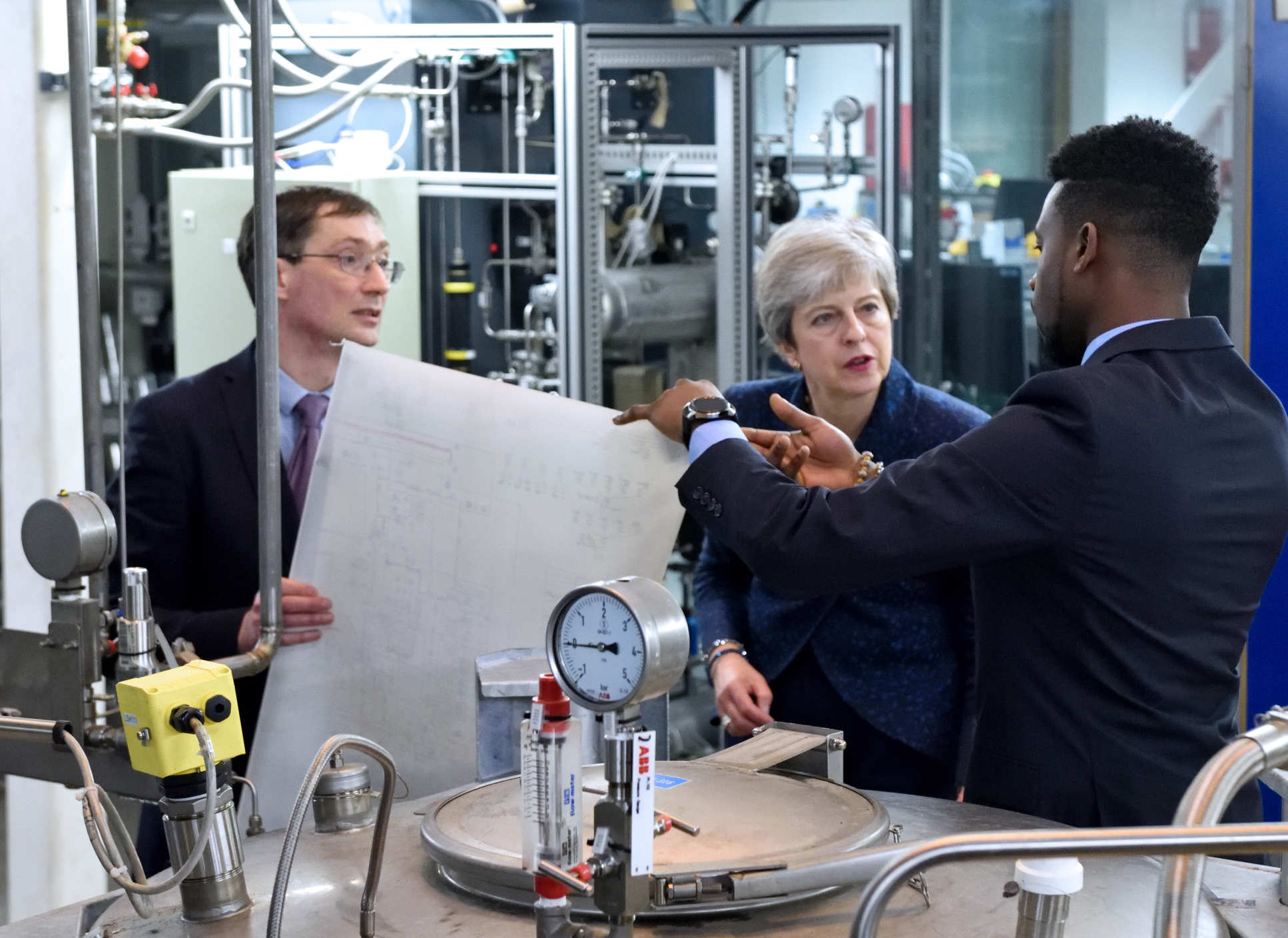
Both the Prime Minister and Energy Minister expressed their admiration for Imperial’s work in carbon capture and storage, as well as the College’s wider climate change and energy research.
Claire Perry MP said: “It’s an amazing facility here... To me, this is the Industrial Strategy in action.”
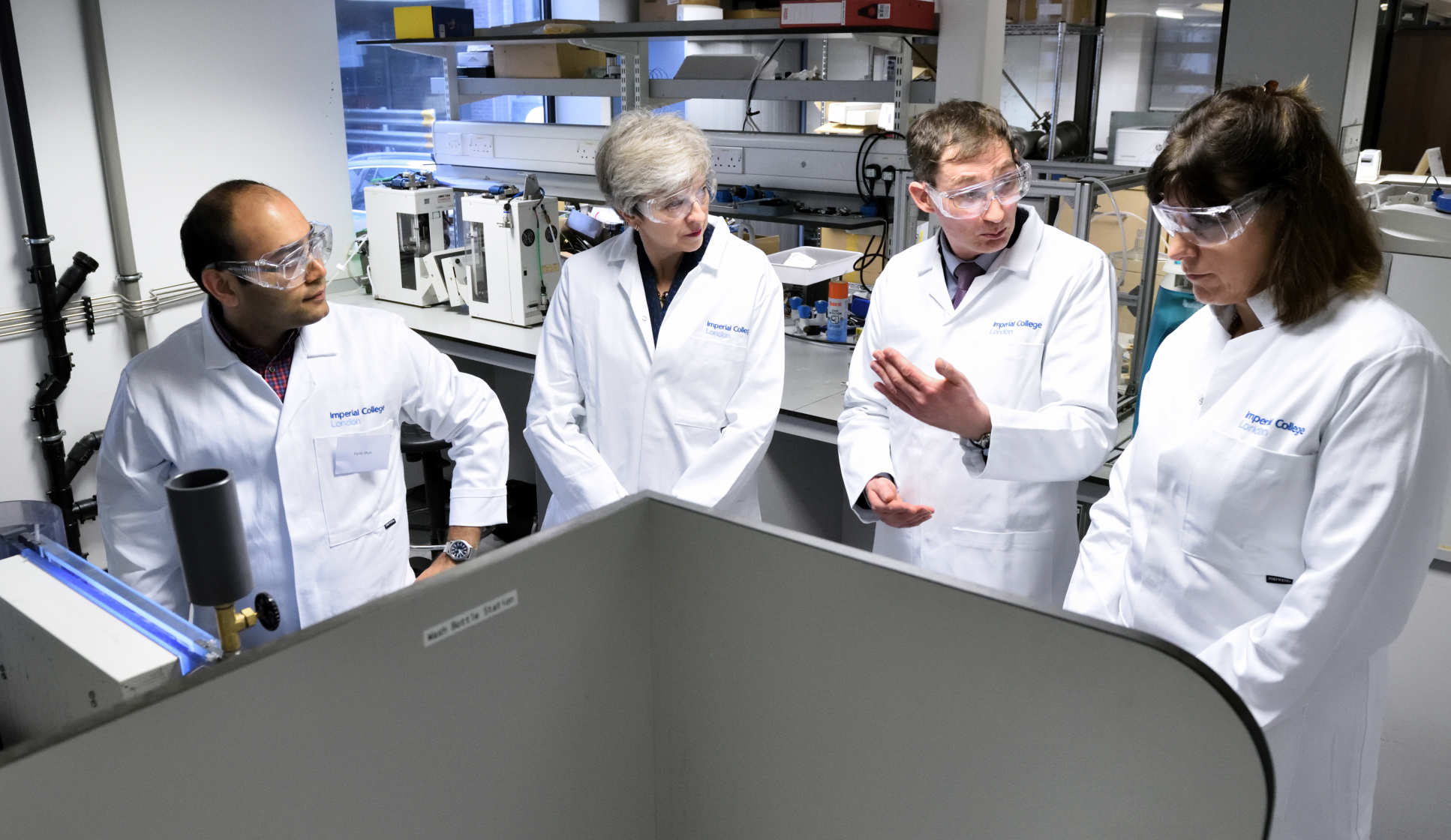
World-changing research
Professor Walmsley introduced the Prime Minister to Dr Colin Hale, Senior Teaching Fellow in Chemical Engineering, and his team of third year undergraduate students who work on the Carbon Capture Pilot Plant.
The Prime Minister met students Alexa Vasey, Maika Ueda and Ferdinand Agu. They spoke about the courses they’d taken in carbon capture, climate change and energy, and Imperial’s deep influence on policymakers and industry.
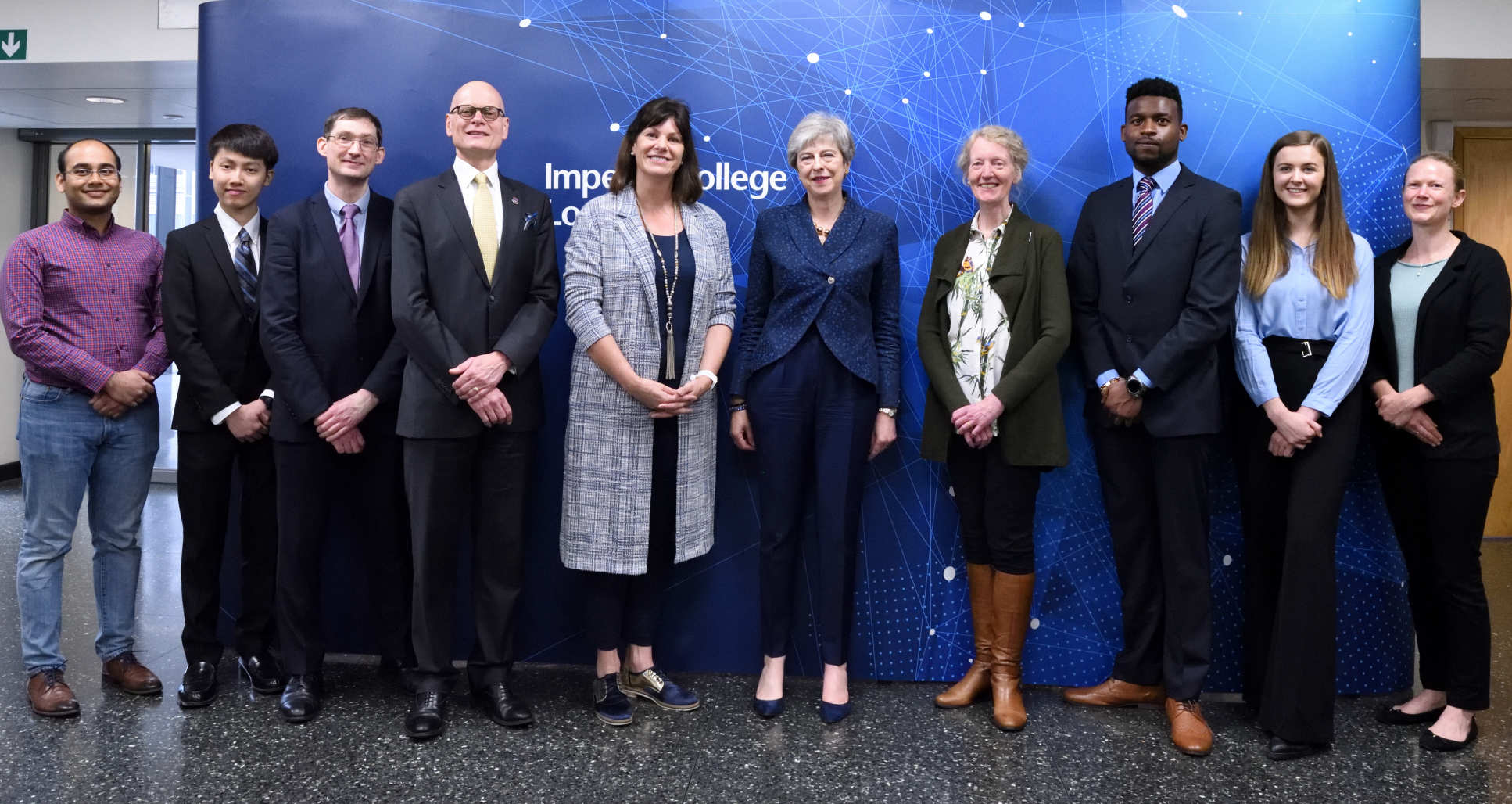
Ferdinand said: “Working here at Imperial has shifted my perspective. I’m now determined to work in energy and the environment, and to help reduce net carbon emissions to zero.”
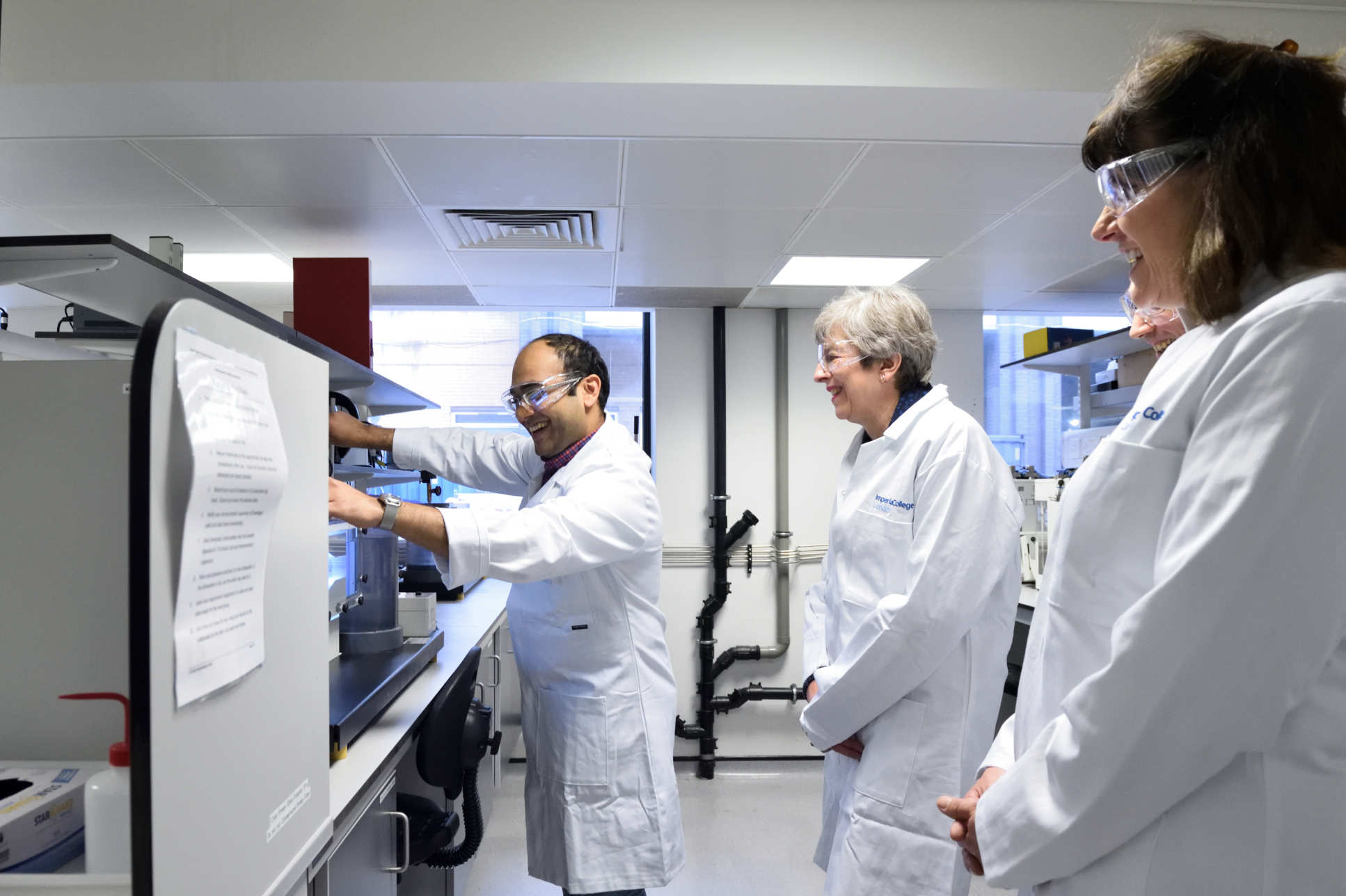
PhD students Janet Skitt and Parth Shah also demonstrated their work to the Prime Minister.
Janet explained how her work generating liquid fuels from second generation biomass produces carbon neutral fuels that are compatible with existing vehicles, which could play a pivotal role in decarbonising transport.
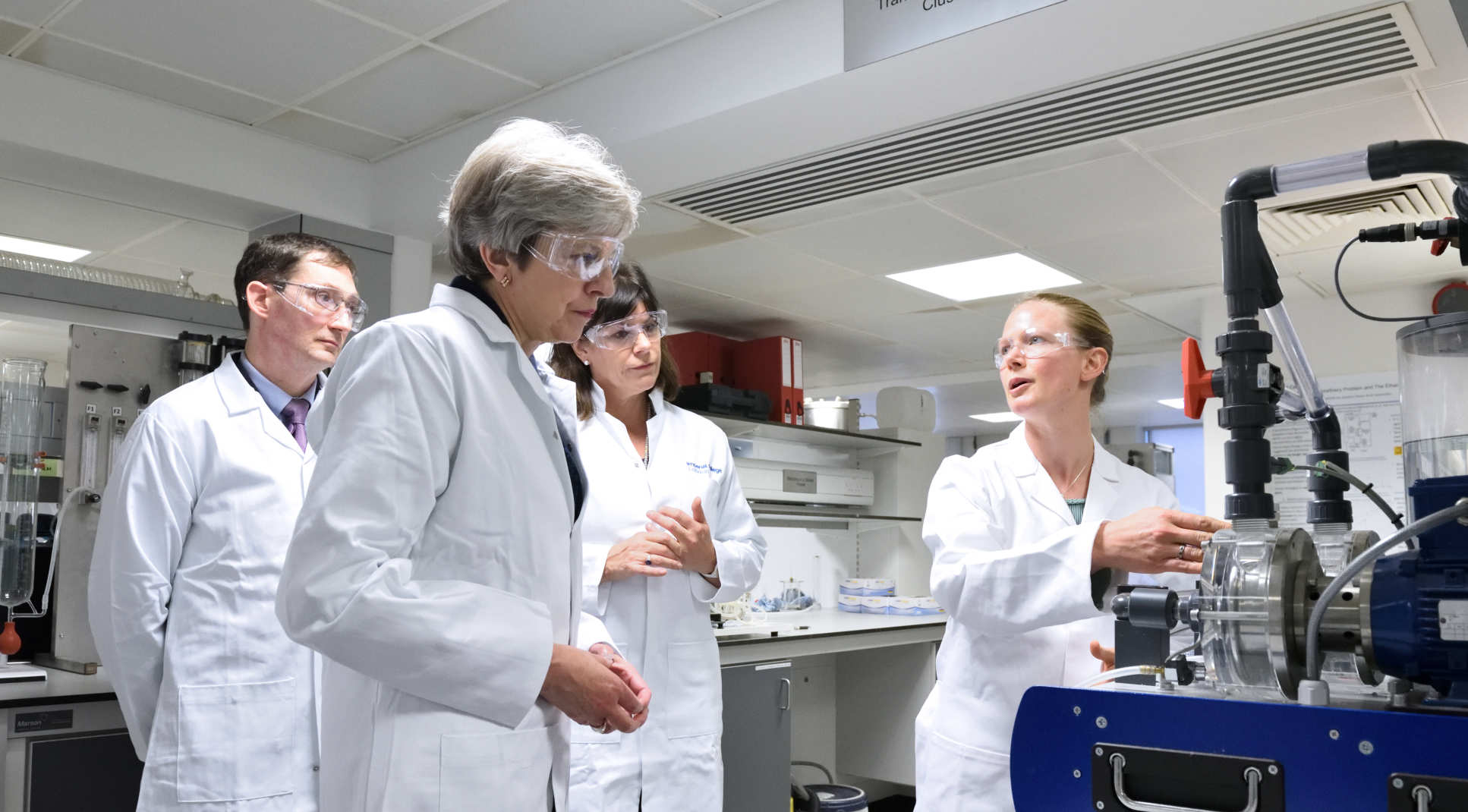
Parth talked about his work on the continuous synthesis of metal oxide nanoparticles, while developing scalable, energy efficient processes that minimise waste water.
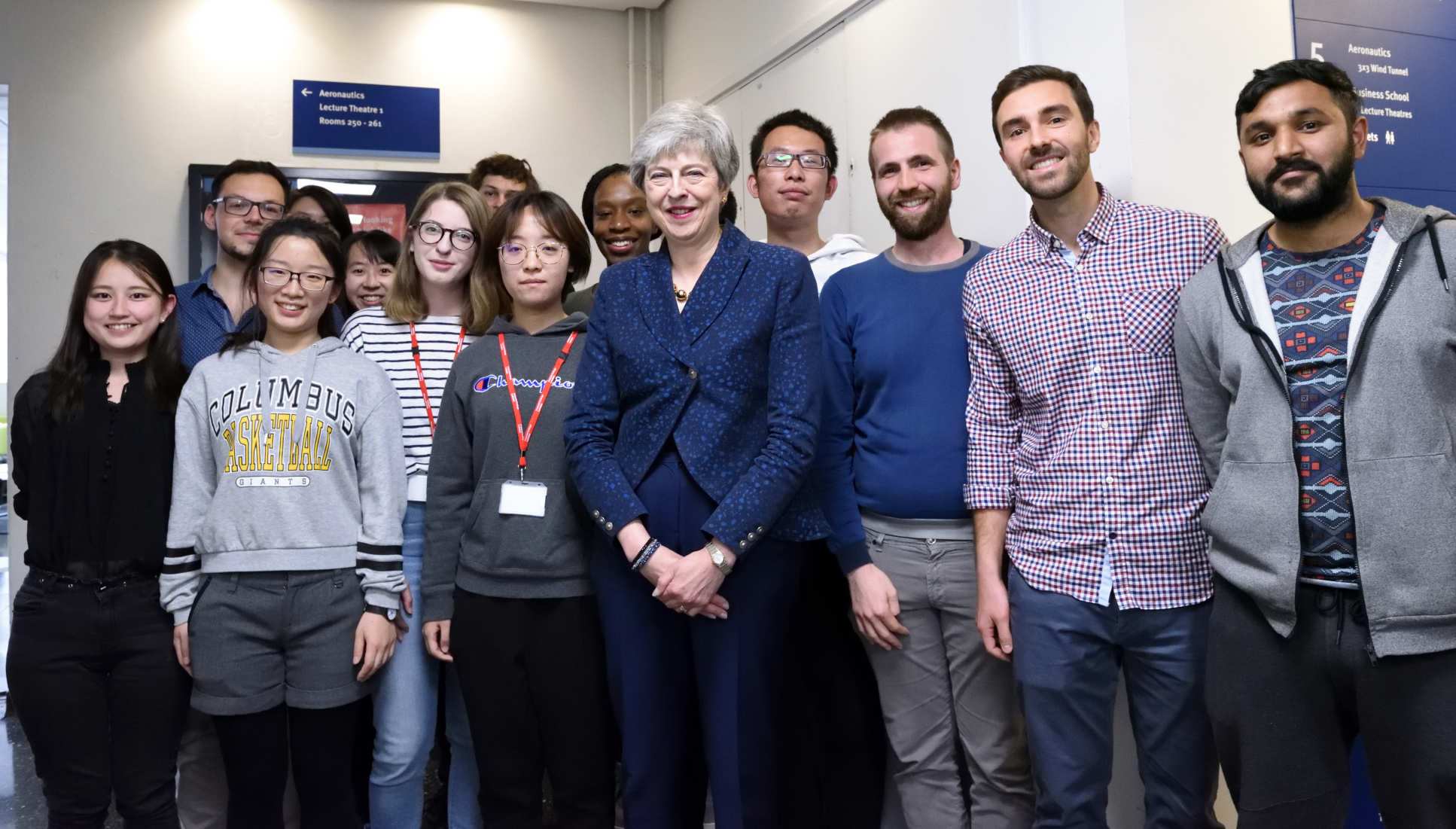
Article text (excluding photos or graphics) © Imperial College London.
Photos and graphics subject to third party copyright used with permission or © Imperial College London.
Reporter
Andrew Scheuber
Communications Division
Tom Rutland
Communications and Public Affairs